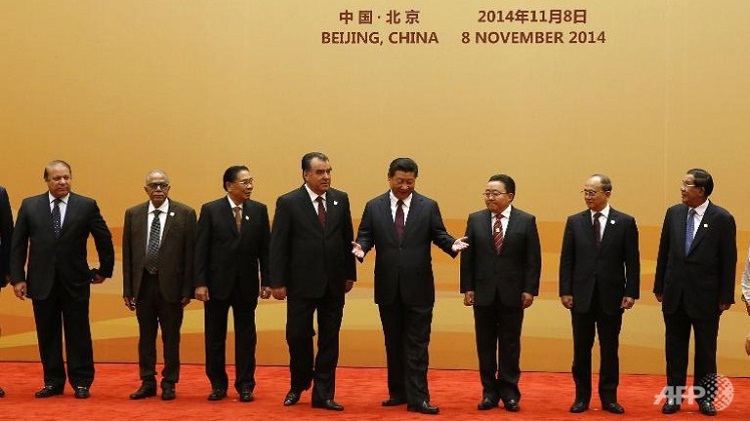The leaders of the APEC economies have agreed upon an anti-corruption transparency network that will allow law enforcement agencies to track illicit cash flows across borders as well as people suspected of graft, according to an APEC economic leaders declaration released on Tuesday.
As reported earlier by Reuters, the network, led by China but also pushed forward by the United States, would open up channels for law enforcement agencies to share information and prosecute cases across national borders.
"This group will try and bring together the actual operational people who will share information on particular cases, share information about how to get convictions and prosecutions and, if necessary, get assets back," APEC Secretariat executive director Alan Bollard told a briefing.
"This is necessary to actually track cases across borders and to follow up on assets that are illegally moved across economies."
The network, known as Act-Net will be based at the training arm of the Communist Party's Central Disciplinary Inspection Commission – China’s top anti-graft watchdog – which has the power and reputation of imprisoning and investigating party officials without charge.
The network is reported to use extradition, mutual legal assistance, and the recovery and return of the proceeds of corruption as the means to tackle graft across borders.
This network comes several months after China launched an operation to track down suspects of economic corruption who fled overseas.
The campaign, dubbed Operation Fox Hunt, has so far nabbed 180 alleged corrupt officials who fled to more than 40 different countries and regions, including the US, Canada, Australia, and Southeast Asian nations.
Some corrupt Chinese officials, according to the Ministry of Public Security, have transferred assets worth billions of dollars overseas through money laundering and underground sources.
China does not have extradition treaties with the United States, Canada or Australia – the three favorite destinations for suspected economic criminals. However, last month, police in Australia and China pledged to cooperate on the extradition of Chinese economic fugitives, including many corrupt officials, in an effort to tackle the difficulties wrought by the repatriation of suspects, due to a lack of bilateral extradition treaties.






















0 User Comments